Japanese mythology is full of animals: monkeys guard the entrances to temples, raccoons stand guard outside of Japanese pubs, cats beckon good fortune with an upraised paw, and foxes serve as shape-shifting messengers from Shinto gods. These animals are sometimes tricksters, sometimes helpers, and sometimes just doing their own thing, but they are a reminder that the natural world has always been close at hand in Japan.
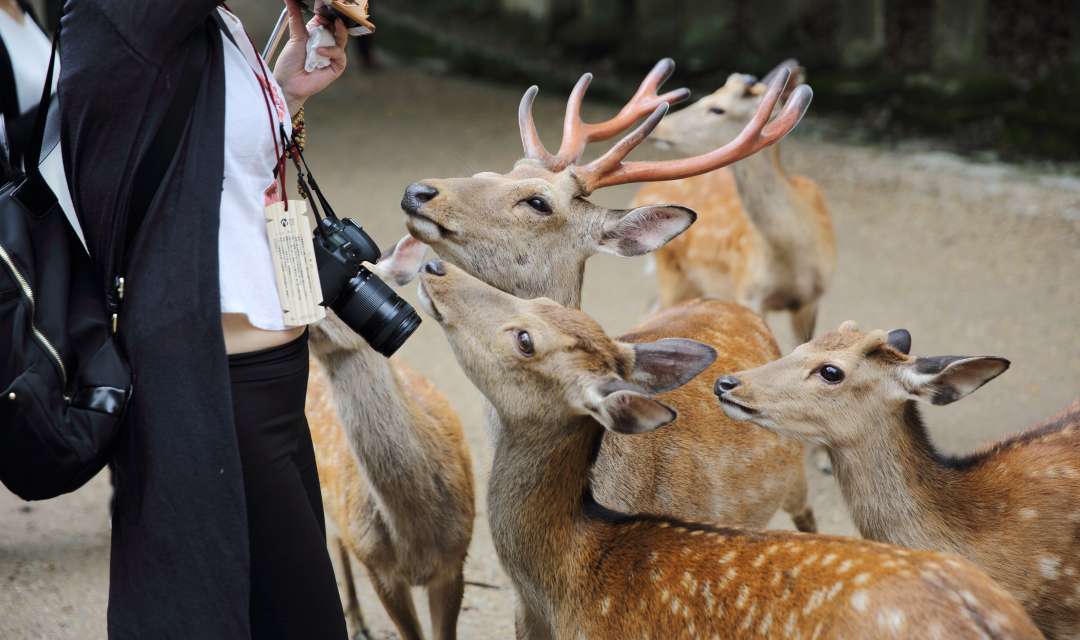
No visit to Nara is complete without getting to know the local deer population
It’s still easy to get amongst the animals in Japan. National parks are plentiful in Japan, and hiking and birdwatching fans enjoy excellent infrastructure across the country. There are also lots of great animal spots in Japan that don’t require hiking boots!
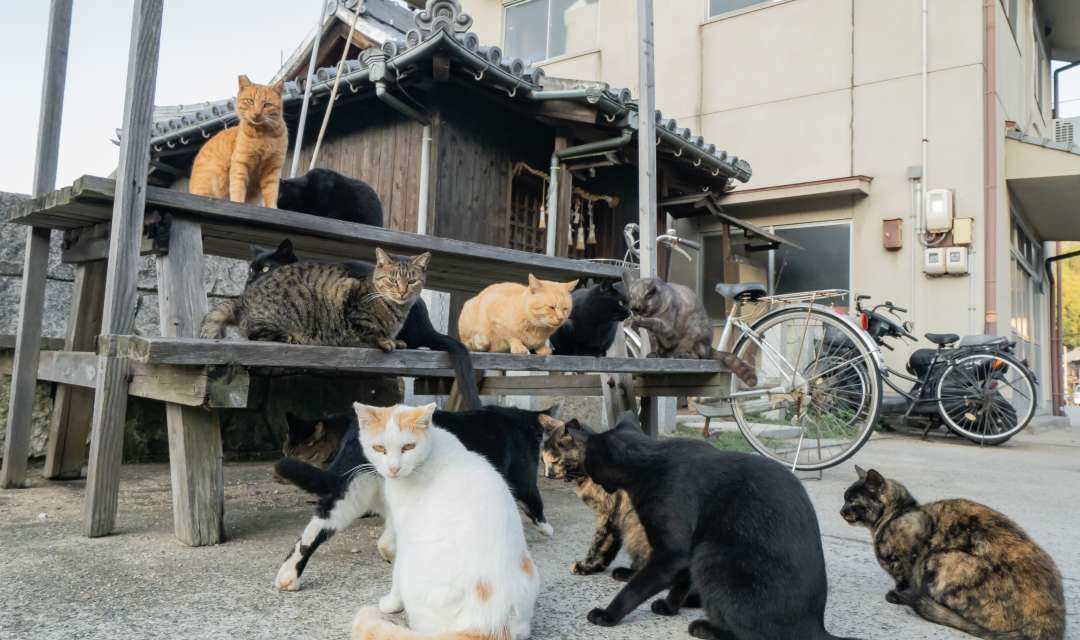
There are several "cat islands" around Japan, where the cat populations far outweighs the human one
Japan has more than ten “cat islands.” Most of these islands were fishing communities or silkworm farms where cats were used to control the rodent population. Now, the main contribution of these felines is to bring in tourists. Aoshima, a tiny island in Ehime prefecture in southern Japan, has only 15 residents and no facilities aside from a ferry, but it does have a cat population of over 120 kitties. The ferry only runs in the morning and afternoon from Matsuyama on the mainland, so pack a picnic, some kitty treats, and get ready to commune with the felines. Don’t miss out on the two shrines on the island, complete with guardian cats lounging around. Tashiroshima is a slightly larger island near Sendai, a few hours north of Tokyo by bullet train, that also has more feline citizens than humans. There is a dedicated cat shrine, a cafe, a few guesthouses, and a few hundred adorable cats.
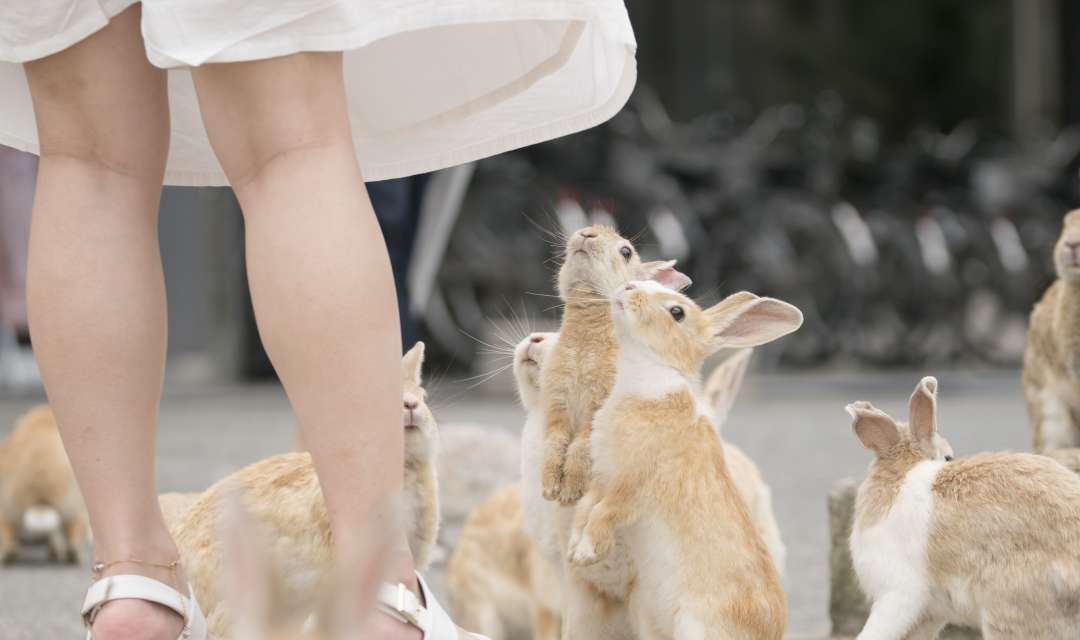
Feed the furry inhabitants of "bunny island"
Not to be left out, there is also a “bunny island.” Local school kids raised and released the population onto the island. The rabbits are friendly, approachable, and love alfalfa pellets and carrots, available near the ferry terminal.
Deer rule in Nara Park. This former capital city, not far from Kyoto and Osaka, is filled with shrines, temples, historical buildings, and hundreds of tame deer. According to lore, a Shinto god rode a deer into Nara, and from that sighting, the local deer were seen as divine, so hunting was forbidden. The deer are free to roam the park grounds, and visitors are allowed to feed them special deer crackers. Some have even learned to bow when first bowed to.
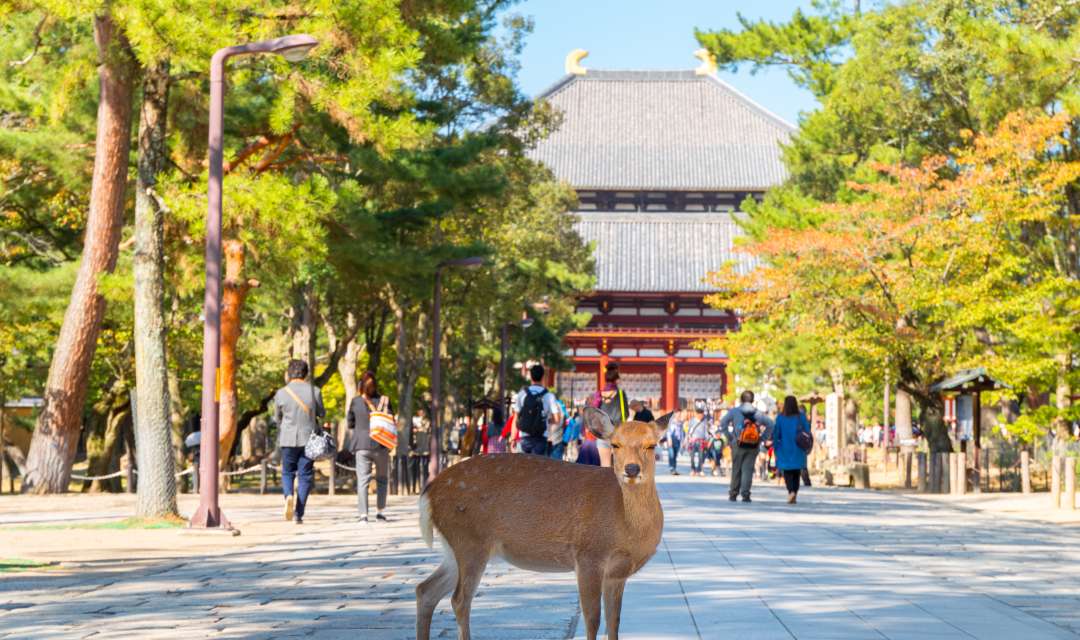
Deer have free rein of Nara Park
In a country that loves hot springs, even animals take a dip in the winter months. Snow monkeys can be observed all year long (although it is easiest to see them bathing during winter) in their own hot springs baths in the Jigokudani Monkey Park in Nagano. The baby monkeys bathing with their parents are irresistibly adorable. Capybaras are popular inhabitants of Izu Shaboten Park, a zoological park in Shizuoka. In winter months, they enjoy outdoor bathing. These sociable creatures also love to be scratched behind the ears and given a treat.
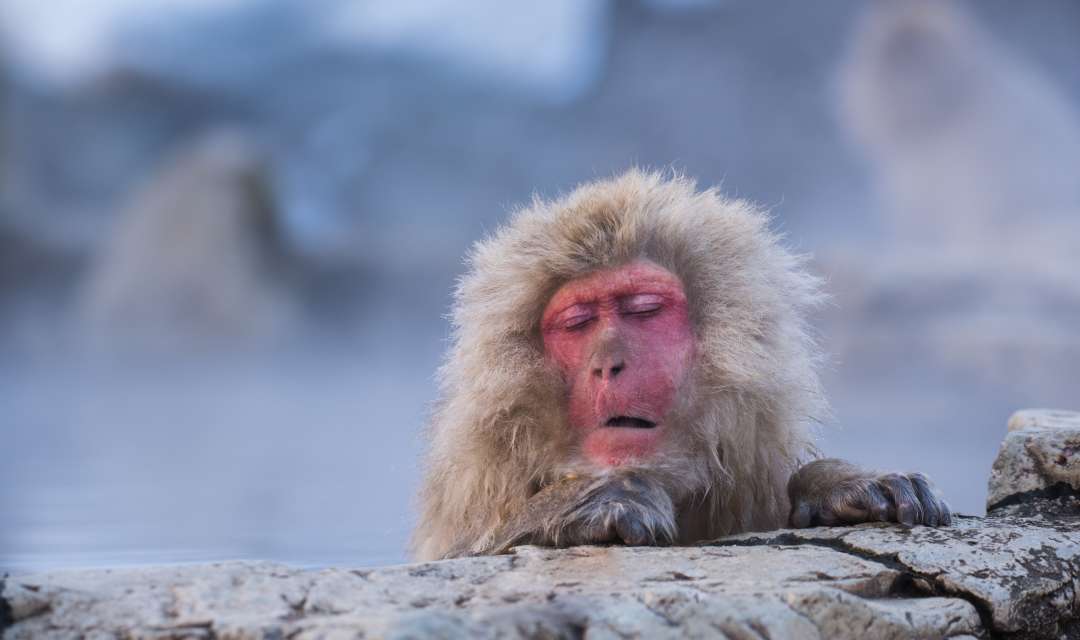
Even snow monkeys love a dip in an onsen
At the very northern tip of Honshu is Shiriyazaki, a long peninsula home to wild horses. They roam freely across Shimokita Hantō National Park and often run up and down the beaches. Most are quite friendly, so bring a bag of carrots to share with them. In Shiriya, there are a couple of small inns, a few shops, and some restaurants to warm up in after greeting the horses.
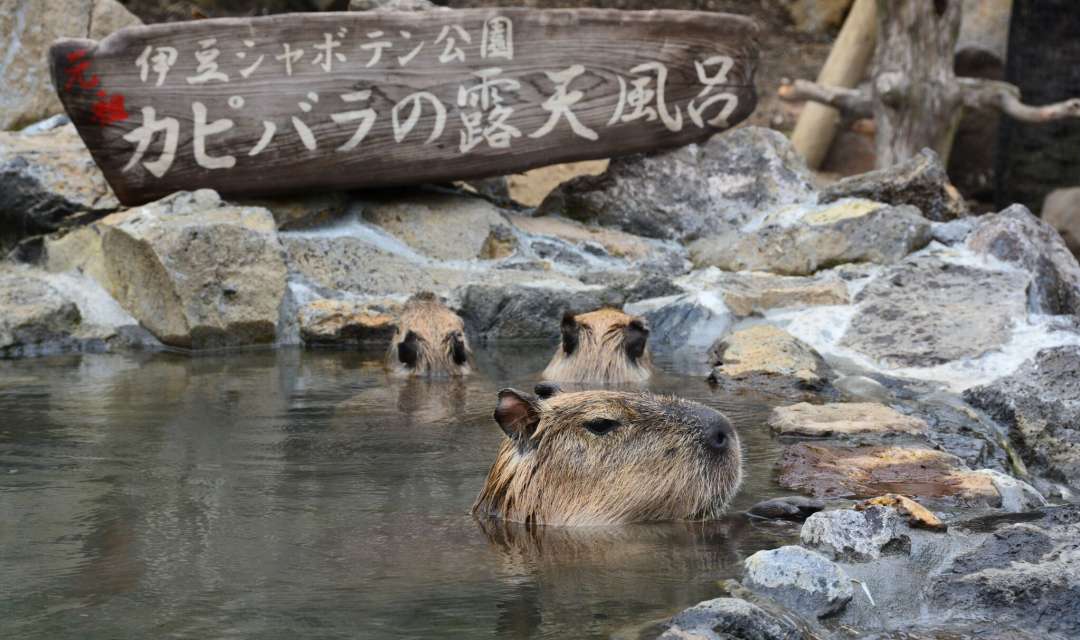
Ever petted at capybara? Izu Shaboten Park gives you the opportunity
While you are enjoying the animals, don’t forget to respect the habitat of these creatures. Be mindful of feeding animals (some places it is allowed, and some places it isn’t), don’t try to touch or catch animals that don’t want to be handled, and always take your trash with you.
Just like Pokémon, you gotta catch ‘em all — with your camera!
-
About the author
Brock has lived in both the Kansai and Tokyo areas for more than six years, so he has his fair share of sweaty summers under his belt. He’s become an expert in finding some quiet nature to dip into on the weekends, knowing that you have to balance all-you-can-drink karaoke with fresh air.





















































